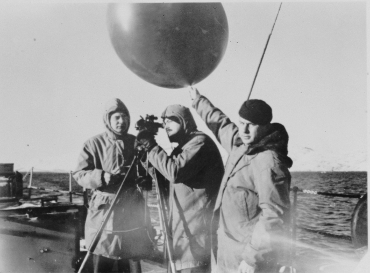Rescue Climate Data
Posted on 27 January 2011 by MartinS
Through a post by Stefan Broennimann - a Swiss climate researcher - I became aware of two projects dealing with the digitisation of historical weather data. Both are important projects, because they will make available for study historical climate data that have never been taped before, from measurements that can never be repeated. These transcripts will help the scientist to better understand the climate of the past which is necessary to understand the climate of the future. Stefan Broennimann describes it the following way:
The available climate record is essential to understanding current and future climate change and improving climate prediction. However, this record could be considerably improved. Hundreds of thousands of volumes of historical meteorological observations have not yet been digitised. These data could be very valuable for society - they should be digitised and made publicly available.
Stefan's own project is called Data Rescue at home. To participate, just click on the Digitise button and type out the digits (if you can read them ;-)). Currently, two data sets are being digitised by volunteers: German radiosonde data from the Second World War and meteorological station data from Tulagi (Solomon Islands) for the first half of the 20th century. When finished, Stefan will publish the data on his website.

Data from radiosondes are waiting to be digitized!
The second project is called Old Weather. The aim is to digitise the logs of ships that sailed the oceans in the last century. These logs document the location of the vessels, weather data (temperature, cloud cover, etc.), and even the emergencies on board (already digitised logbook observations from another project can be viewed here). How it works is explained quite well in the tutorial: How to take part.
To avoid errors (sometimes you can only guess at what was intended), in both projects, each typed page is checked by several volunteers. Well, the activity is not terribly exciting, but if you ever feel like you wanted to contribute to climate science, here's your chance!































 Arguments
Arguments























 0
0  0
0






Comments